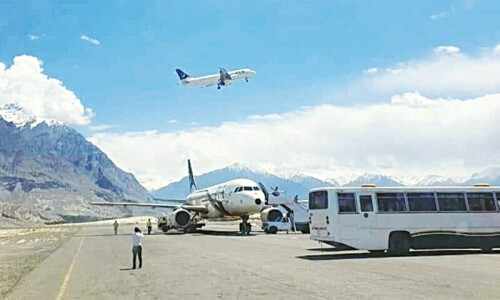Across much of South Asia, there is a growing strain of state-sponsored nationalism that is worrying and potentially dangerous in its consequences.
From India to Bangladesh, and from Pakistan to Sri Lanka, political dissent of various hues is being branded as anti-state and clamped down on viciously.
Bangladesh Prime Minister Sheikh Hasina Wajed has marched her country to a deadly place in her quest to vanquish her political enemies, while in Sri Lanka, the civil war may be over but great prejudice and discrimination are rampant against ethnic Tamils.
Meanwhile, Kashmiri dissenters have once again caused India to bare its teeth while the political opposition in the restive northeast of that country has for decades now been labelled as militants, anti-nationalist and veritable traitors.
The unmistakable rise of a narrow, state-sanctioned version of patriotism is evident in far too many places in South Asia against far too many oppressed groups.
Yet, it is Pakistan that must remain of the most immediate and serious concern.
Misplaced patriotism — encouraged, sponsored and directed by sections of the state — is dominating the political discourse at present. Be it Baloch separatists or even nationalist politicians like Mahmood Khan Achakzai, there is wholesale condemnation of swathes of the political spectrum taking place.
Even a thoroughly regrettable speech by Altaf Hussain has been turned into an opportunity to shoehorn all political opinion into a narrow, sanctioned version of nationalism.
No right-thinking Pakistani would oppose the essence of 'Pakistan zindabad', but a patriotism test — demanding of everyone to express allegiance to the Pakistani state before countenancing their political views — is a development that militates against good sense and political rights.
Perhaps a brief tour of history may help here. Once upon a time, the Khan of Kalat was arrested for sedition — a charge that echoes uncomfortably decades later in the plight of Baloch activists today.
East Pakistan was lost in the civil war, a conflict situation exploited by India — arguably, the roots of separation were laid by the state-led West Pakistani campaign to label Bengalis and their principal representative party, the Awami League, as anti-state.
Soon after, in a truncated Pakistan, Zulfikar Ali Bhutto banned the National Awami Party of Wali Khan. Today, its successor, the ANP, is a mainstream political party and its cadres have been decimated by the banned TTP.
The story continues with ugly allegations against G.M. Syed of Sindh and Sardar Ataullah Mengal, and arrives in the present day with the demonisation of Mr Achakzai, whose father faced similar accusations before his death in a bombing.
There is one Pakistan, but there is no one idea of what that Pakistan should be. The state has neither the right nor the authority to dictate to the people what Pakistan ought to be to them.
The political realm is best served by a robust debate among competing ideas and philosophies. Coercion and artificial homogeneity are the real threats.
Published in Dawn, August 29th, 2016















































